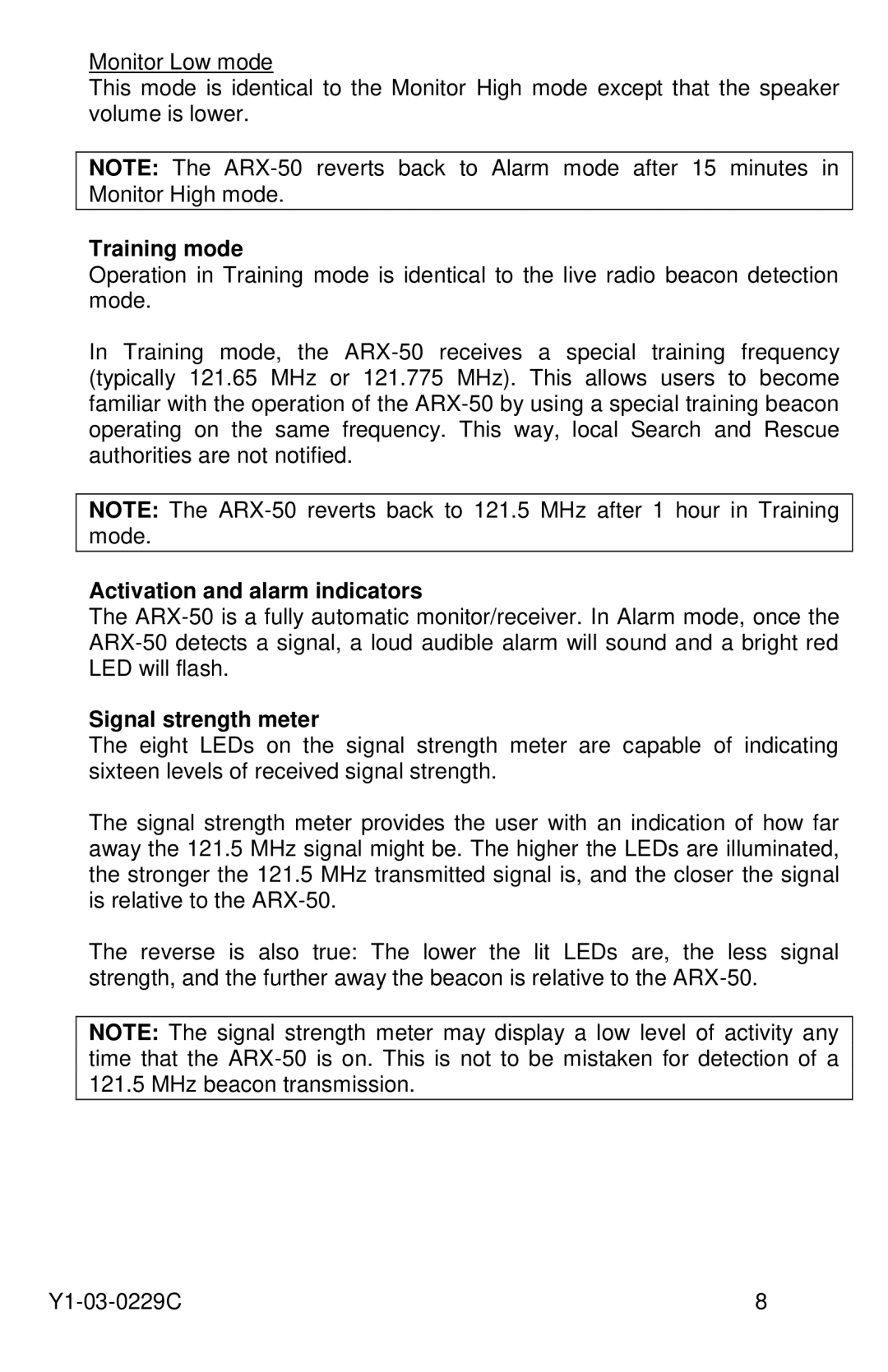Y1-03-0229C, ARX-50 specifications
The ACR Electronics ARX-50, model Y1-03-0229C, is a state-of-the-art device designed for emergency safety and communication, particularly in marine and other outdoor environments. As an essential tool for adventurers, sailors, and professionals working in remote locations, the ARX-50 ensures reliable connectivity and safety in critical situations.One of the standout features of the ARX-50 is its Compact Emergency Position Indicating Radio Beacon (EPIRB) functionality. This beacon operates on 406 MHz frequency, which is the global standard for distress signals. When activated, it transmits location data to search and rescue satellites, allowing for swift response times in emergencies. With precise GPS positioning integrated into the device, users can count on accurate location transmission, enhancing rescue capabilities.
The ARX-50 is built to withstand harsh marine conditions. Its rugged design meets stringent waterproof standards, ensuring reliable performance even in adverse weather. The device is also lightweight and compact, making it easy to carry without adding significant bulk to emergency kits or life vests.
In terms of battery life, the ARX-50 is equipped with an extended battery capacity that ensures longevity during critical operations. The device can broadcast a distress signal for an extended period, maximizing chances of rescue. Additionally, the ARX-50’s battery can be easily replaced, which is a crucial feature for maintaining operational readiness.
Another notable technology integrated into the ARX-50 is the user-friendly interface. The device features simple controls, allowing quick activation during emergencies. The clear LED indicators provide visual cues about the operation status and battery life, ensuring users are always informed. Moreover, the lightweight construction does not compromise the robustness required for emergency equipment.
The ARX-50 also incorporates advanced features such as an integrated strobe light that enhances visibility during night operations, further assisting rescue teams in locating individuals in distress. The versatility in applications—ranging from marine use to outdoor activities—adds to its appeal, making it a valuable tool for anyone venturing into remote areas.
In summary, the ACR Electronics ARX-50, Y1-03-0229C, is a highly reliable and efficient emergency communication device. With its combination of rugged design, enhanced GPS technology, user-friendly features, and robust emergency signaling capabilities, it represents a vital tool for safety-minded individuals navigating remote terrains or working in challenging environments.

